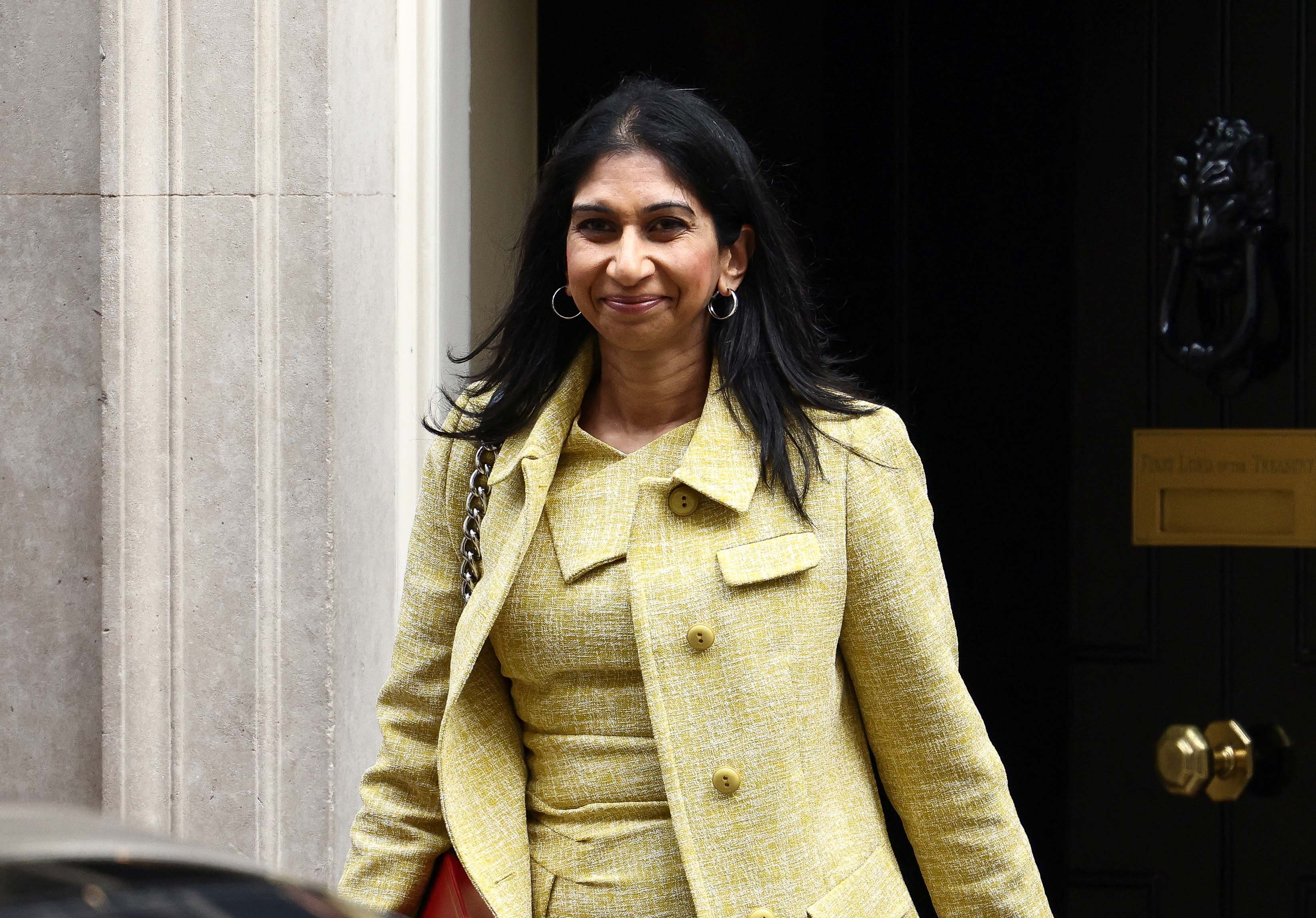The fuss in the British press over the interior minister was a storm in a teacup
By Alper Ali Riza
As every observer of corruption in public life knows, it is the cover-up, not the misconduct that brings public figures down. Often the misconduct is some minor infringement of the criminal law or other disreputable conduct, whereas the cover-up usually involves an abuse of power symptomatic of an underlying malaise in government.
Sometimes cover-ups take bizarre forms. Suella Braverman KC, the UK interior minister was caught speeding last summer while she was attorney general, a post that requires the holder to be above suspicion, but not above normal human lapses like exceeding the speed limit.
A conviction for driving above the 50 mph speed limit is no resigning offence. Like every good offender she admitted the crime and paid the fine, so why all the fuss in the British press last week?
It would be different if she were driving dangerously or with excess alcohol, which are resigning matters for judges and presumably attorneys general too. On the contrary it seems her road traffic offending was not serious, and she was offered the choice to do a group speed-awareness course in lieu of prosecution, available to drivers whose offending was a minor lapse in concentration – there being no suggestion she was corruptly offered the course because she was interior minister.
But there is a suggestion that she acted improperly in asking her civil servants at the interior ministry to look into whether the course organiser would agree for her to do the course on a one-to-one basis to avoid the publicity of taking part as a member of a group – a pathetic attempt at a cover-up but a weak case to answer.
Her civil servants at the ministry refused and she asked her special adviser to look into the matter who was advised by the course organiser that a one-to-one course was not available in her case.
For her part Suella Braverman said that she canvassed with civil servants the options open to her on how to do the speed-awareness course as interior minister in light of security and privacy concerns that flowed from her new role, and that at no time did she instruct her officials to act contrary to the advice she was given that the one-to-one option was not available.
What she should have done is consult a defence solicitor with expertise in road traffic law first before asking her civil servants how the solicitor’s advice married up with her public role.
Her choice of a conviction instead of going on a speed-awareness course seems counter-intuitive, as a conviction attracts more adverse publicity than doing a speed-awareness course, but that’s an eccentric judgement that proves nothing.
It seems a storm in a teacup, but for the prime minister the issue was whether the facts warranted an investigation on whether she broke the ministerial code. He decided that the facts did not warrant further investigation either by the cabinet office or his ethics adviser. Was he right not to investigate her behaviour further?
In summary the code provides that it is the personal responsibility of ministers to ensure their conduct does not breach the ministerial code on how to maintain the highest standards of probity. Ministers must respect the principle of collective responsibility whereby they speak with one voice and take the consequences as one government.
They have a duty to parliament to account and be held to account for the policies, decisions and actions of their departments and to do so truthfully and to offer their resignation if they knowingly mislead parliament or fail to correct a misleading statement.
Ministers must be as open with parliament and the public as possible and only refuse to provide information if disclosure would not be in the public interest. They must ensure that no conflict of interest arises or appears to arise between their public duties and their private interests.
On no account should they receive gifts or accept hospitality that affects their judgement or make them seem beholden to outside interests.
Ministers must not use government resources for party political purposes and not compromise the independence of civil servants or ask them to act other than in furtherance of public service in accordance with the civil service code.
The civil service code is given legislative backing and provides that public service above personal interests is key to the integrity and honesty of the service. Civil servants are required to be impartial, not to discriminate unlawfully or breach human rights enshrined in law. They are required to implement policy impartially irrespective of their own political views and act and make decisions on the merits based on evidence and not ignore inconvenient facts.
Suella Braverman is not an easy politician to like. She is a bit of a quisling who is the darling of the Conservative party right-wing because as a brown Asian woman she is able to say things that her white English fellow-travellers would not dare say in public.
But I am afraid the prime minister was right to conclude that she did not fall foul of the ministerial code as would have been the case if she were trying to use her status as interior minister to get favourable treatment from the speed-awareness course organiser. The case against her was flimsy even though her choice to be prosecuted and get a criminal record when she was offered the speed-awareness alternative, was bizarre – so bizarre it is suspect but nothing more.
The way Britain governs herself has been pioneering in the art of government ever since the British system inspired Montesquieu’s book on the separation of powers in the 18th century and having a ministerial code to ensure honest accountable government that is not corrupt works in Britain and could work elsewhere too.
Alper Ali Riza is a king’s counsel in the UK and a retired part time judge







Click here to change your cookie preferences